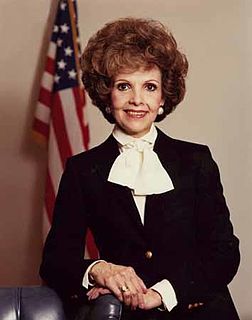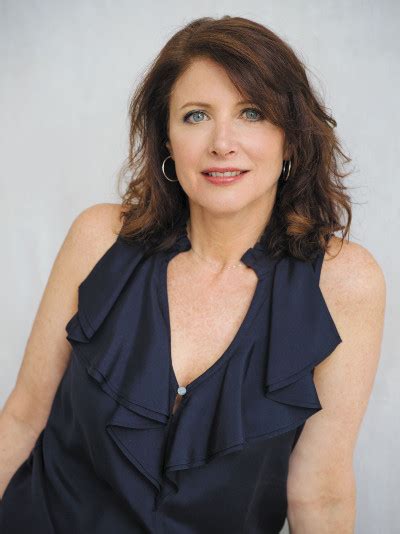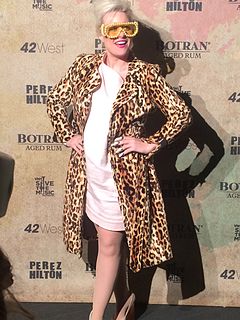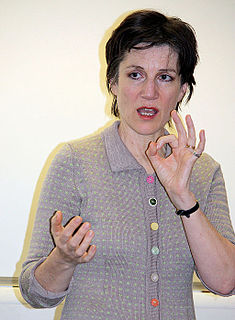A Quote by Paula Hawkins
Certainly, there is a tendency to lump women who write similar types of books together, and it's not just in crime, is it? Women's fiction is supposedly a whole genre of itself. There's no male equivalent.
Related Quotes
I grew up reading crime fiction mysteries, true crime - a lot of true crime - and it is traditionally a male dominated field from the outside, but from the inside what we know, those of us who read it, is that women buy the most crime fiction, they are by far the biggest readers of true crime, and there's a voracious appetite among women for these stories, and I know I feel it - since I was quite small I wanted to go to those dark places.
Basically, this industry is mostly run by men, and I think women have a harder time...I've had enough of the "Women in Rock" issues of magazines and all of that. There's no reason why we should have our own separate little genre; that's just ridiculous. Besides, what is the genre? I certainly don't fit into the whole "Lilith" thing (thank God), but I am a female musician. And there are enough other great females in music that don't have to fit into it, either.
Within the new self-help books for women, patriarachy and male domination are rarely identified as forces that lead to the oppression, exploitation, and domination of women. Instead, these books suggest that individual relationships between men and women can be changed solely by women making the right choices.
We can see, from California to New York, from Maine to Florida, Seattle to New Mexico - everywhere there are women's groups. Everywhere there are women who have gotten together to examine global warming, and women who have gotten together to prepare each other for single parenting - there are women who have come together to be supportive to those whose mates are in prison, male or female, partners are in prison. All sorts of gatherings of women. I mean, I'm just celebrating my 80th year on this planet, and I look back 50 years ago and there was nothing like that.
Turkey is a complex country. Most readers are women, of all generations, and they are passionate about books. However, the written culture is mostly patriarchal. In general, men write; women read. I would like to see this pattern changing. More women should write novels, poems, plays, and hopefully, more men will read fiction.
The way that I'm feeling the shift in movie industry is that women are allowed to be part of the development process. So I do feel like things are changing because I'm allowed to option books or write an original screenplay or direct. Those possibilities are really wide open. I think that males still struggle to write for females, which is totally fine because I don't think I could write a really impactful male role because that's not the life that I lived. So we'll just keep shouting and say we need more opportunities for not just women but people that are just different.
The bonding of women that is woman-loving, or Gyn/affection, is very different from male bonding. Male bonding has been the glue of male dominance. It has been based upon recognition of the difference men see between themselves and women, and is a form of the behaviour, masculinity, that creates and maintains male power… Male comradeship/bonding depends upon energy drained from women.
Maybe just as many women writers as male writers could be billed as the next great American writer by their publisher. Maybe book criticism sections could review an equal amount of female and male writers. Maybe Oprah could start putting some books by women authors in her book club, since most of her audience is women.
Comedy in the past hasn't spoken to women because it wasn't written by women, and male writers don't make women three-dimensional characters. Too often, women just facilitate the man's comedy: they're not crazy; they're not funny. But women are as vulgar as they are elegant, as stinky as they are smelling of eau de parfum.


































